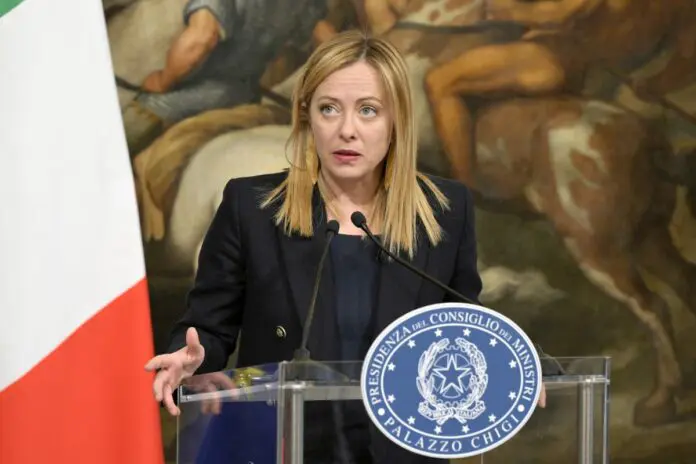“On October 7, 2023, the Israeli people experienced one of the most tragic moments in their history. We must never forget the inhumane aggression carried out a year ago by Hamas. We still have in our minds the massacre of thousands of defenseless civilians, including women and children, and the desecration of their bodies, shamelessly shown to the world without any pity. Our thoughts constantly turn to the hostages, torn from their families and loved ones, and who are still waiting to return home today,” said Prime Minister Giorgia Meloni in a statement marking the first anniversary of the Hamas attacks on the Israeli population.
“Remembering and strongly condemning what happened a year ago is not just a ritual, but a prerequisite for any political action we must take to restore peace in the Middle East. The increasing reluctance to do so betrays a latent and widespread antisemitism that should concern everyone. The recent public demonstrations have unfortunately confirmed this,” Meloni added.
“On this day, we reaffirm Israel’s legitimate right to defend itself and live securely within its borders, while also emphasizing the necessity that this be done in accordance with international humanitarian law. We cannot, in fact, ignore the enormous toll of innocent civilian victims in Gaza, victims twice over: first of Hamas’s cynicism, which uses them as human shields, and then of Israeli military operations,” the Prime Minister explained. “The consequences of Hamas’s attack have sparked a regional escalation that could lead to unpredictable outcomes. It is everyone’s duty to restore dialogue and work towards de-escalation.”
Italy, as the current G7 President, will continue to push for an immediate ceasefire in Gaza, the release of Israeli hostages, and the stabilization of the Israeli-Lebanese border through full implementation of United Nations resolutions, Meloni said in conclusion. “We reaffirm our support for all ongoing mediation efforts and our commitment to work towards a lasting political solution based on the two-state perspective.”

